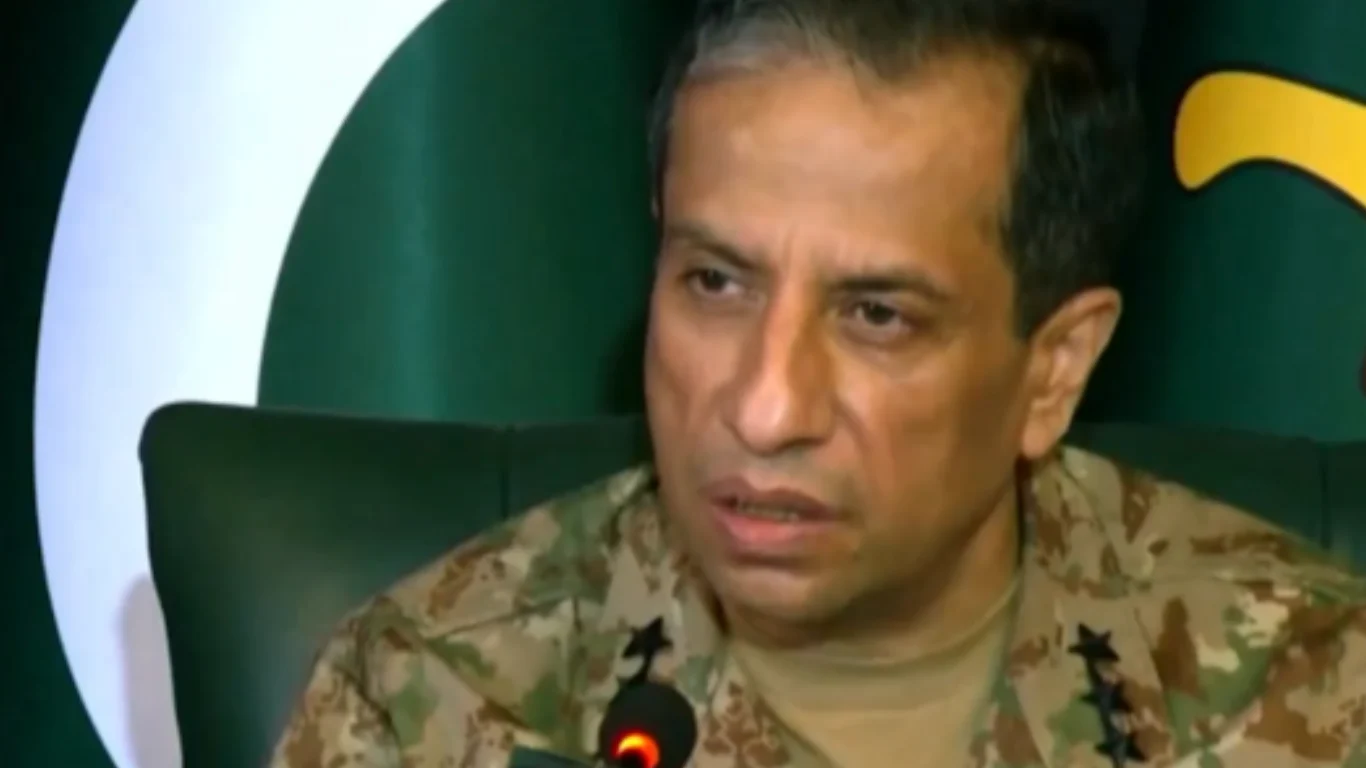
On May 11, 2025, Pakistan Army’s Director General of Inter-Services Public Relations (DG-ISPR), Lieutenant General Ahmed Sharif Chaudhry, addressed the media regarding Operation ‘Bunyanum Marsoos’, a retaliatory military action targeting Indian military bases in response to India’s Operation Sindoor. During the briefing, a journalist inquired about the use of Islamic terminology in naming the operation and the rationale behind conducting early morning attacks. In his response, Lt Gen Sharif emphasized that Islam is not merely a personal faith for soldiers but an integral component of the Pakistan Army’s training and ethos. He stated, “It is part of our faith. Iman, taqwa, jihad fi sabilillah—that’s what drives us, that’s our motto.” This reflects the army’s longstanding commitment to Islamic principles, which have been deeply embedded in its institutional culture.
The Pakistan Army’s motto, “Iman, Taqwa, Jihad fi Sabilillah” (Faith, Piety, Struggle in the name of God), was introduced during General Zia-ul-Haq’s regime in the late 1970s. This change replaced the original motto, “Ittehad, Yaqeen, Tanzeem” (Unity, Faith, Discipline), established by Pakistan’s founder, Muhammad Ali Jinnah. The alteration marked a significant shift towards an Islamization agenda within the military, aligning the army’s identity more closely with religious ideology. Under Zia’s leadership, religious education became a mandatory part of the army’s training, and the military’s operational ethos was increasingly framed within an Islamic context. This transformation was part of a broader national policy to Islamize various state institutions and align them with Islamic principles.
Lt Gen Sharif’s comments underscore the enduring influence of this Islamization policy within the Pakistan Army. By asserting that Islamic values are central to the army’s identity and operational conduct, he highlighted the ideological foundation that guides military actions such as Operation ‘Bunyanum Marsoos’. The operation’s name itself, invoking Islamic terminology, reflects this deep-seated connection between military objectives and religious ideology.
This integration of Islamic principles into the military’s framework has implications for Pakistan’s defense policies and its approach to regional security. It suggests that military decisions are not solely based on strategic considerations but are also influenced by ideological commitments. Understanding this context is crucial for analyzing Pakistan’s military actions and their potential impact on regional stability.
In summary, Lt Gen Sharif’s statement reaffirms the Pakistan Army’s foundational connection to Islamic ideology, a legacy of General Zia-ul-Haq’s Islamization policies. This ideological orientation continues to shape the army’s identity and its approach to military operations, as exemplified by Operation ‘Bunyanum Marsoos’.

















